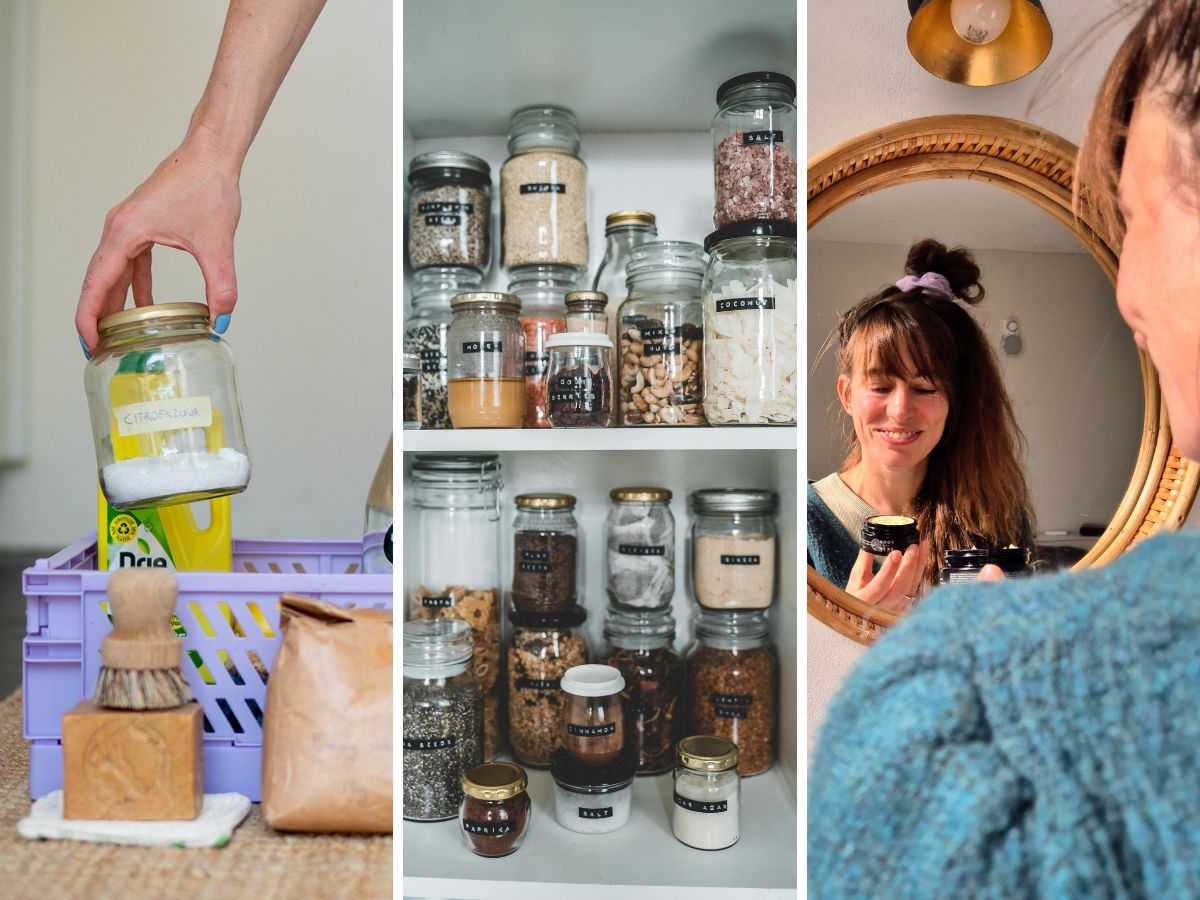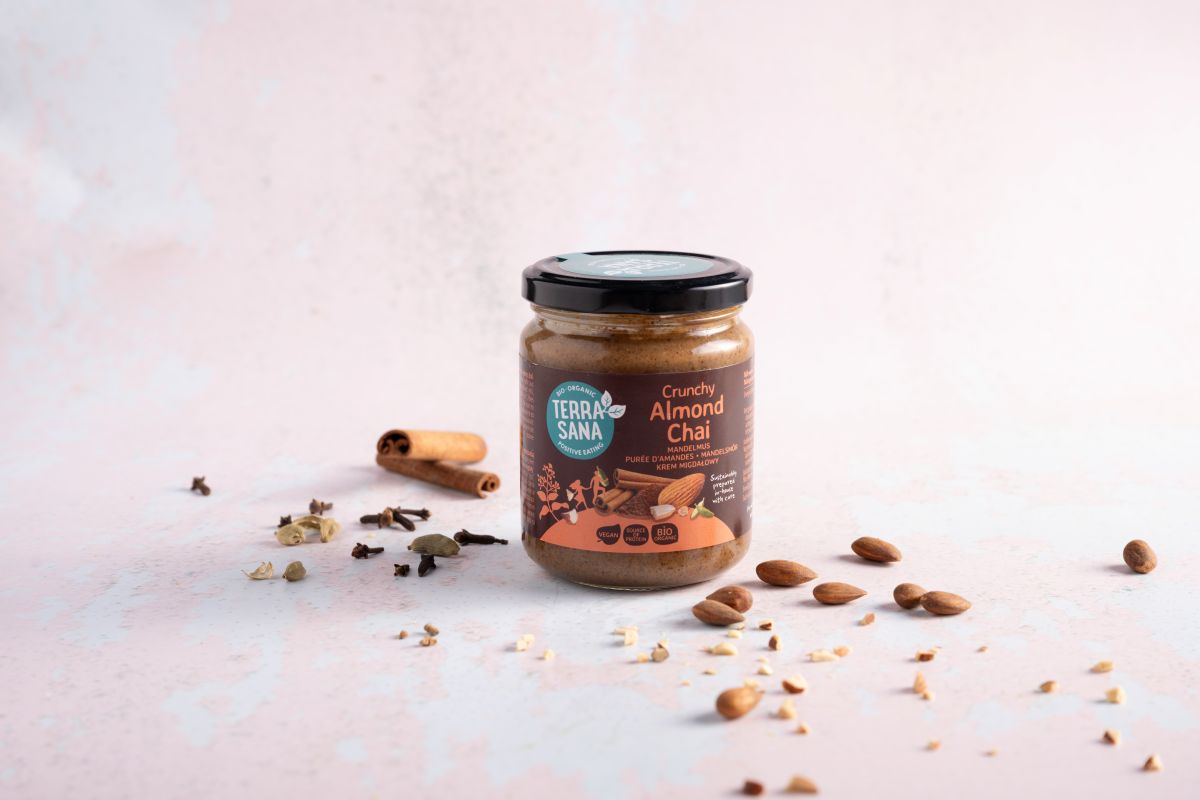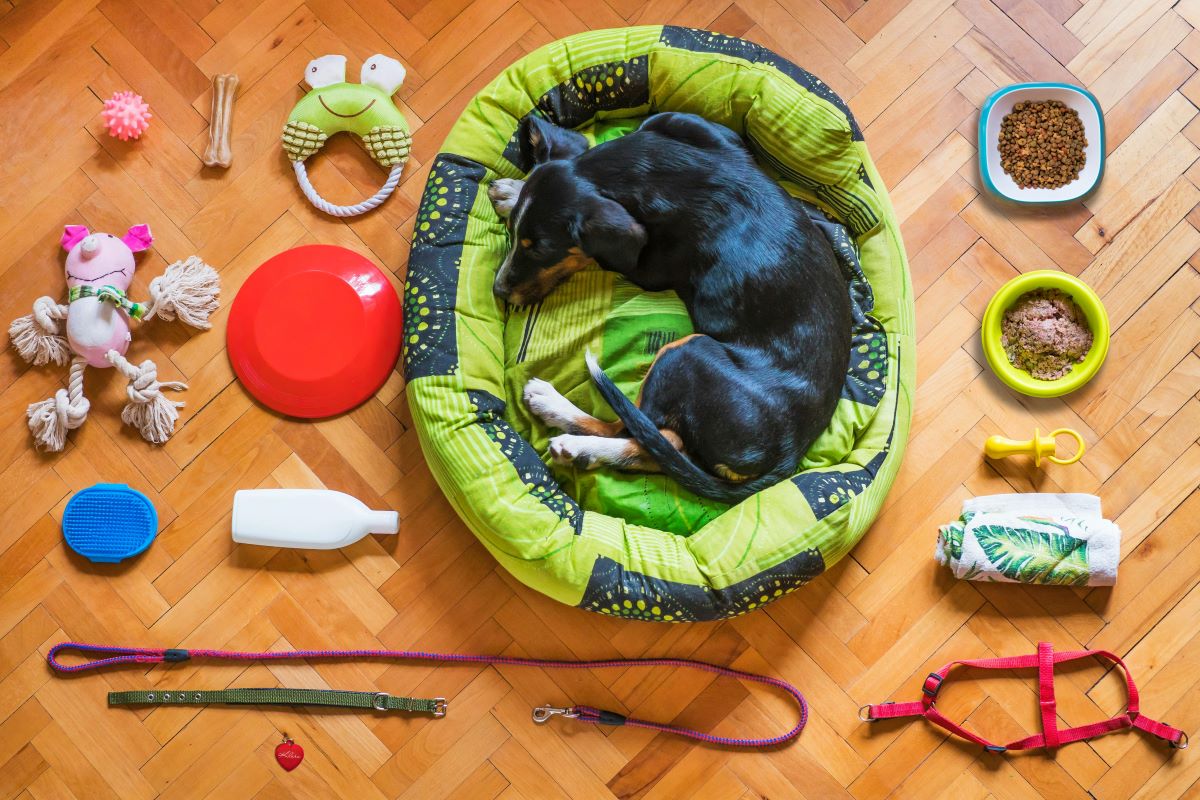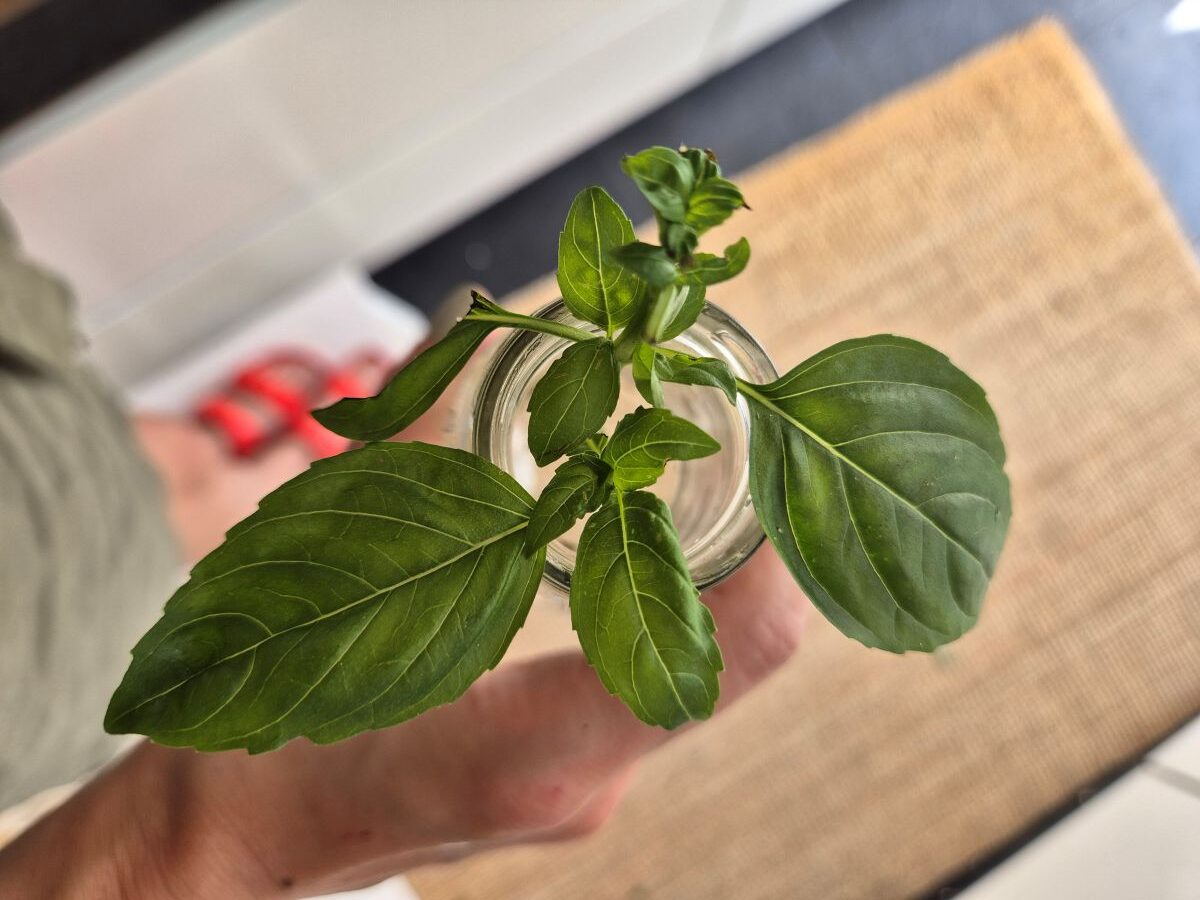Palm oil is a tricky issue. There are people (and companies) trying to ban palm oil from their lives, but there is also a current that says: ‘a life without palm oil, that would be unsustainable’. What is true? Together with Marieke Leegwater, palm oil expert at charity Solidaridad, we dive into the world of palm oil. Did you already know this about palm oil?
Why palm oil is all around us
Pizza, margarine, biscuits, crisps, soup, peanut butter, cleaning and personal care products... As soon as you walk into the supermarket, you will come across many products with palm oil as an ingredient. Palm oil is the most widely used vegetable oil worldwide. But what is it actually? Palm oil comes from the pulp of the orange-red fruit of the oil palm and is mainly grown in Asian countries like Malaysia and Indonesia, but it is also grown in Africa and Central and South America. Manufacturers use it because it gives texture to all kinds of products and it is cheap. Because with a high yield per hectare of land, it can be grown easily and quickly. This makes it potentially a sustainable product.
This is also what palm oil does
In Indonesia, rice and maize farmers are switching to palm oil cultivation. You can harvest palm oil every fortnight, so it is incredibly efficient. That means palm oil gives poor farmers an income every fortnight. As a result, families can get out of poverty within a generation. They are no longer hungry, can send their children to school and have a brick house built. So palm oil also does something positive and thus also contributes to a more equal world.
Source: Solidaridad


Palm oil is a complex issue. We cannot do without palm oil and so the best thing we can do is to choose palm oil from companies that have the world's better interests at heart.
The dark side of palm oil
But palm oil also has a dark side. Palm oil is big business. Primary forests are being cut down to make way for palm oil plantations. We all know the sad videos of orangutans losing their home. Besides deforestation and loss of biodiversity, palm oil production can also involve intensive farming resulting in high water consumption, pesticides and soil depletion. And if that is not all, the sector is not always free of labour exploitation either. There are unfortunately still palm oil producers who make their employees work in poor conditions and for low wages. ‘That has to stop,’ many people rightly say. But then, is quitting palm oil the most logical and sustainable option? And are alternatives, other oils and raw materials, then so much better?
Palm oil: it's not so black and white
‘Stopping using palm oil is an understandable reaction, but not the solution,’ argues palm oil expert Marieke Leegwater. When palm oil is removed from a product, it is often replaced with an alternative. ‘For those alternatives such as soy, sunflower, coconut oil or shea butter often require much more agricultural land (sometimes as much as five to 10 times as much land). Because of palm oil's high yield per hectare, you need less land than for alternatives, which means it is right possible to preserve biodiversity because less land is needed for oil production for humans. And therefore more land remains for biodiversity to flourish. To make this possible, it is important that both local governments and western countries get involved: we are a major consumer of palm oil with our consumption behaviour.’
Greenwashing in the food industry
So what about all those trendy sustainable brands that are supposed to make me feel good because of being palm oil-free? Marieke: ‘If you like these products, you should continue to use them for that reason. But whether they can really deliver on their sustainable promise is uncertain. Unfortunately, these companies often choose alternatives such as coconut oil or shea butter, which have a lower yield per hectare and are therefore less sustainable than palm oil. Furthermore, all kinds of things go wrong in the production of other oils (just like in the palm oil industry), so it is difficult to find out whether a product without palm oil is that much better.’
In general, you can say that all agricultural production has harmful side effects. A recent study showed that it is precisely the much vaunted coconut oil that threatens most species*. Other research by the World Wildlife Fund and The International Union for Conservation of Nature (IUCN), among others, shows that the amount of pesticides and other chemical adjuvants is again very high in sunflower oil and rapeseed oil. So the challenge is to look at the negative impact in all production and avoid or reduce it.
Sustainable palm oil
‘Quitting palm oil is running away from the problem and certainly not a sustainable choice,’ Marieke argues. She says the solution lies in making the palm oil industry more sustainable.’ Companies, governments and charities are working hard to make the palm oil industry more sustainable. They have united in a global round table, the Roundtable on Sustainable Palm Oil (RSPO). Palm oil companies that want to become more sustainable can join it. This organisation also awards seals of approval; these are reserved only for those companies that comply with strict rules. Combined with charity (NGO) campaigns, the pressure seems to be having an effect. In Indonesia, deforestation caused by palm oil has decreased significantly in recent years. According to them, the situation is even better now than 20 years ago. Want to know more? Then check out this article on deforestation in Indonesia.
About the Roundtable of Sustainable Palm Oil
The RSPO represents the largest, independent party that stands for sustainable palm oil production. RSPO-certified palm oil protects the environment and the local communities that depend on it for their livelihoods, so that palm oil can continue to play an important role in food security. Together with other organisations, organisations like the World Wildlife Fund (and Solidaridad) are playing an active role in influencing and shaping the RSPO standard to ensure that it offers more guarantees for people and the planet. In November 2018, the RSPO standard was strengthened and it is now an essential tool that can help companies meet their commitments to palm oil that is free from deforestation, farmland expansion, exploitation and the use of fire.
Source: World Wildlife Fund
What is the best thing you can do in the Netherlands?
You too can do something when shopping: Pay attention to the RSPO label is Solidaridad's advice. In the Netherlands, 90% of the palm oil found in food is certified according to RSPO guidelines. Marieke: ‘As a consumer, you vote with your wallet: the more demand for better palm oil, the more the farmers, businesses and governments will work towards sustainability. The next step for Dutch companies is to only buy palm oil from companies that only sell certified palm oil.’
RSPO label also faces criticism
Although parties such as Solidaridad, Milieu Centraal, Greenpeace and WWF also support the RSPO label, there are also opponents. The climate organisation Milieu Defensie, for instance, is critical of the label. Their view is that we don't need palm oil at all. ‘We can also opt for organic farming in Europe,’ they say. And they are also critical of the label. Marieke: ‘Solidaridad, on the contrary, sees that buying sustainable palm oil brings about improvements in the sector and is therefore precisely in favour of continuing to buy sustainable palm oil. Solidaridad agrees that enforcement of RSPO rules is sometimes difficult. Within RSPO, Solidaridad is therefore working on better enforcement of the rules.’
Sustainable choices in the supermarket
My conclusion from talking to Marieke is that quitting palm oil is not a sustainable and realistic choice. A sustainable solution is to make the vegetable oil industry as a whole more sustainable, of which palm oil is a big part, given its large off-take. Companies, governments and NGOs should demand sustainability with strict regulations, but there should also be more education on this important topic so that, as an average consumer, you can also make a better choice and learn to know and appreciate labels. My finish to this conversation is: stay critical, even in the supermarket. If a product contains palm oil, check whether the RSPO label is on the packaging. Then you can be sure it is sustainable. If you do prefer to use alternatives such as coconut oil, check for the fair trade label and the organic label. If you cannot find it, try to look for an alternative (brand) on the shelf that does have a hallmark.
More sustainable tips from thegreenlist.nl
- Also see: The results of our research into the most sustainable oil to cook with.
- Also see: is soy sustainable or not?
- Also see: how sustainable is a banana?
- Also see: the great sustainable peanut butter test.
Sources: IUCN, cell.com. Photo credits: Kaboompics.com (peanut butter and shampoo), palm oil and palm oil plantations: Solidaridad.












